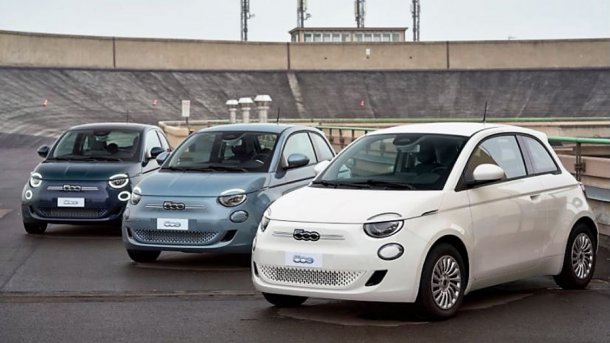E-cars: France wants to quadruple the number of BEVs sold annually by 2027
The French government and the automotive industry have agreed on a framework to promote electromobility.

The Fiat 500 Electric is one of the most popular BEVs in France.
(Bild: Stellantis)
In the foreseeable future, France will have significantly more electric cars on the road than today. According to a strategic agreement between the French government and the automotive industry, the number of all-electric cars sold in France is set to rise from 206,000 in 2022 to 800,000 by 2027. By 2030, 2 million BEVs are to be produced in France every year. The number of battery electric or fuel cell-powered commercial vehicles sold each year is set to increase six-fold to 100,000 by 2027.
With the agreement, also known as the pact, the French government and industry are responding to the EU's decision to ban the sale of combustion-powered cars in the fall of 2022, among other things. The years 2024 to 2027 are a decisive phase of transformation in which the French automotive industry must also expect increasing competition from abroad. By way of comparison, around 470,000 BEVs were newly registered in Germany in 2022.
The agreement (PDF) also sets out the goal of France having around 400,000 publicly accessible charging points by 2030. By 2027, 25,000 with a charging capacity of at least 50 kW are to be installed on all main roads, particularly on the national road network. This would triple the current number.
Purchase premium
Unlike Germany, France will continue to pay a premium for the purchase of an electric vehicle in 2024. The total funding volume amounts to 1.5 billion euros, 200 million less than in 2023. According to the agreement, the government wants to ensure that the purchase or leasing of electric cars will continue to be financially supported in the future. The reason given is that the challenges of the transformation are now more complex than expected two years ago due to higher costs for electricity and raw materials as well as inflation.
The government is also aiming to offer companies unspecified multi-year financial incentives to convert their fleets to low-greenhouse gas drives if they have at least 100 cars in their fleet. This is also an important prerequisite for creating a used car market for BEVs. The agreement also provides for financial support for local authorities wishing to purchase electric city buses. (anw)